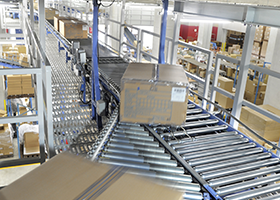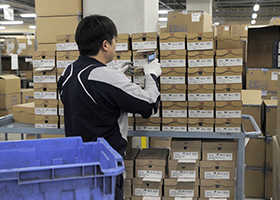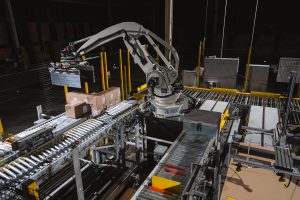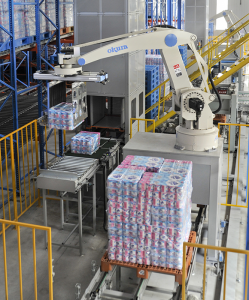Introduction
In today’s fast-paced industrial environments, actionable data is just as valuable as physical production. As industrial automation systems evolve, the ability to monitor, analyse, and optimise operations in real time has become a critical competitive advantage. At the heart of this digital transformation are intelligent dashboards—visual interfaces that consolidate complex data from machines, sensors, and systems into a central, user-friendly platform.
This article explores how intelligent dashboards enhance the effectiveness of industrial automation systems, their key features, and the benefits they offer across manufacturing and logistics sectors.

What Are Intelligent Dashboards?
Intelligent dashboards are advanced visual tools that provide a centralised view of real-time operational data collected from across an industrial automation system. These dashboards translate raw machine and sensor data into meaningful visual formats such as charts, graphs, KPIs, and alerts.
Typically integrated into supervisory control and data acquisition (SCADA) or manufacturing execution systems (MES), intelligent dashboards enable operators, engineers, and managers to make data-driven decisions. They are designed to be customisable, scalable, and interactive—allowing users to drill down into specific data points, filter by conditions, and automate response workflows.

The Role of Dashboards in Industrial Automation Systems
Industrial automation systems are composed of interconnected hardware and software components—robotic arms, conveyors, PLCs, HMIs, sensors, and control systems—all generating and consuming data. Intelligent dashboards serve as the connective layer that bridges machine-level activity with human oversight.
Here’s how they contribute to system efficiency:
- Real-Time Monitoring: Track machine performance, production output, and system health from a single interface.
- Alarm & Fault Notification: Automatically detect anomalies, faults, or downtime triggers, and issue alerts for immediate intervention.
- Performance Analytics: Analyse OEE (Overall Equipment Effectiveness), throughput, cycle times, and bottlenecks to identify improvement areas.
- Energy & Resource Tracking: Monitor power consumption and resource usage to support sustainability and cost control.
- Predictive Maintenance: Use historical trends and AI to forecast failures before they occur.
By consolidating data from various automation components, dashboards allow organisations to maintain operational continuity, ensure product quality, and minimise downtime.

Key Features of an Effective Industrial Dashboard
To unlock the full potential of intelligent dashboards, several core features must be in place:
- Customisable Layouts: Operators should be able to tailor the dashboard to show the most relevant data for their specific role or production line.
- Real-Time Data Feeds: Information must be updated continuously with minimal latency to reflect the actual state of operations.
- Interactive Visualisation: Charts, gauges, and heat maps should allow users to explore data at a granular level.
- Device Integration: Compatibility with PLCs, SCADA systems, IoT devices, and third-party software is essential for centralised reporting.
- Mobile Access: Cloud-based dashboards offer remote access, enabling oversight from anywhere with an internet connection.
- AI and Machine Learning Integration: Smart dashboards incorporate predictive analytics and automated suggestions based on past performance data.
Benefits of Intelligent Dashboards in Industrial Automation
- Improved Decision Making
By visualising real-time data in an intuitive format, intelligent dashboards enable faster and more informed decision-making at all levels – from operators on the factory floor to plant managers and executives. - Increased Operational Visibility
Dashboards provide a bird’s-eye view of all processes, which helps to identify inefficiencies, detect bottlenecks, and ensure better coordination between different automation layers. - Faster Response to Issues
Automated alerts and diagnostic visualisations reduce the time needed to detect and correct faults, preventing prolonged downtime. - Enhanced Productivity
Access to detailed performance metrics supports continuous improvement initiatives, process optimisations, and lean manufacturing goals. - Support for Remote Operations
With the rise of Industry 4.0, remote management capabilities have become critical. Intelligent dashboards empower remote monitoring and control, enabling businesses to remain agile and resilient. - Scalability for Growing Operations
As automation systems expand, dashboards can scale accordingly – offering new modules, data sources, and user roles without requiring overhauls.
Real-World Applications
Industries adopting intelligent dashboards include:
- Automotive: For tracking robotic assembly line performance and quality metrics.
- Food & Beverage: To monitor batch consistency, sanitation metrics, and cold chain compliance.
- Logistics & Warehousing: For real-time visibility into conveyor systems, palletising robots, and throughput metrics.
- Electronics Manufacturing: To ensure high-speed precision assembly and fault detection.
In each case, the ability to visualise and react to system data enhances uptime, product quality, and operational efficiency.
Integrating Intelligent Dashboards with Okura’s Automation Solutions
At Okura Singapore, intelligent dashboards are integrated as a standard component of our industrial automation systems. From robotic palletizers to advanced conveyor systems, our solutions include real-time monitoring and performance reporting that empower clients to manage their operations with clarity and control.
We work closely with clients to develop customised dashboards that suit their unique workflow and KPIs, ensuring actionable insights are always at their fingertips.
Conclusion
Intelligent dashboards are more than just a visual aid—they are an essential tool in unlocking the full potential of industrial automation systems. By offering real-time visibility, actionable insights, and predictive analytics, they enable organisations to enhance productivity, reduce downtime, and future-proof their operations.
To learn how Okura Singapore’s industrial automation systems and intelligent dashboards can optimise your operations, get in touch with our team today.

